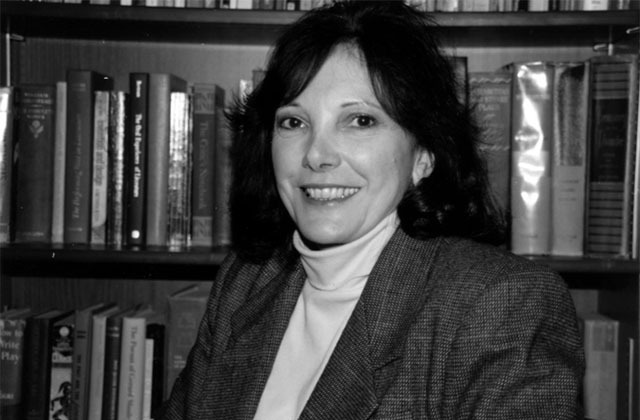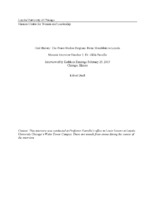Professor Gilda Parrella
Professor Emerita School of Communication, Loyola University of Chicago
In the interview, Communications Professor Gilda Parrella describes her involvement with the Peace Studies committee in the early 1990s which met in order to create a new program at Loyola University Chicago following affiliation with Mundelein College. Professor Parrella has a research background in conflict resolution and participated in a group called Conflict Resolution Catalysts in the Soviet Union in 1990. In the interview, Professor Parrella discusses the gender dynamic of the Peace Studies committee. The women were more interested in material regarding mediation and resolving conflict, whereas the men were focused on coursework on power and authority. She also notes how men dominated the conversations. Professor Parrella wanted the Peace Studies program to be dedicated to making the world better rather than acting as a collection of classes under a header. The university incorporated the minor into the curriculum in 1993. Professor Parrella closes by reflecting on the importance of peace in relation to her work on conflict resolution in war and peace settings, stressing interpersonal relations and mediation.
Audio - Part 1 and 2
Transcript
Time Log - Part I:
| 0-4:32 minutes | Introduction. Barnett Pearce, chair of School of Communication. Kathleen McCourt led Peace Studies Committee. Trip to the Soviet Union with Conflict Resolution Catalysts. |
Time Log - Part II:
| 0-5 minutes | Creation of Peace Studies committee. Affiliation of Mundelein College with Loyola University Chicago. |
| 5-10 minutes | Invitation to Peace Studies committee. Commute between Water Tower Campus and Lakeshore Campus for meetings. Strong opinionated men and women on committee. |
| 10-15 minutes | Women more towards mitigating conflict and relations. Men more towards power and authority, War and Peace Studies. Prudence Moylan. Women’s Studies. |
| 15-20 minutes | Peace Studies incorporated into curriculum in 1993. Academic-activism divide. Value-based approach. |
| 20-25 minutes | Collection of courses versus courses focused on peace in a particular way. Interdisciplinary approach. Prudence Moylan. Carol Frances Jegen. William French. |
| 25-30 minutes | Practical dimension of how to dissolve conflict. Importance of communication. President Carter and Iran hostage crisis. |
| 30-35 minutes | Communication behaviors fostering relationship development. Peace negotiations – why some work and others do not. Peace Studies students. Experiential dimension. |
| 35-40 minutes | Start with small, move towards big with conflict resolution. Consensus-building journalism with less focus on conflict. |
| 40-45 minutes | Time in Soviet Union – conflict between Russians and Ukrainians. |
| 45-50 minutes | Talk of a particular student in the Peace Studies program. The student is active on and off campus. |
| 50-53:38 minutes | Talk of documents around the Peace Studies committee. Kathleen McCourt. |


